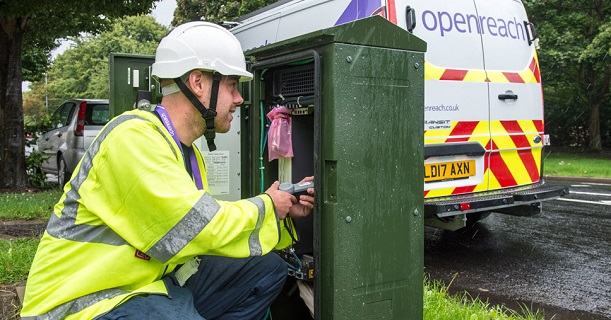High Court rejects CityFibre’s appeal against ruling that allows copper connections to be marketed as ‘fibre’.
ASA’s original ruling in 2017 was based on research that suggested UK consumers didn’t know or care much about “fibre”, a term they saw as generic, meaning faster fixed line speeds and it didn’t influence their buying decisions.
Given that the UK is at the bottom of the fibre deployment table in Europe, this is arguably not surprising. Now fibre to the home (FTTH) is starting to proliferate, along with consumers’ understanding of its advantages in terms of speed, reliability, cost and coverage.
Allowing companies like the incumbent BT to sell copper connections as fibre will cause confusion among consumers, but also damages alternative network providers’ greatest selling point and business model – providing fibre connections cheaper and faster than the competition.
Last month CityFibre’s CEO, Greg Mesch, and BT’s Chief Strategy and Transformation Officer, Michael Sherman, had a fiery public exchange at the FTTH Conference in Amsterdam during a panel debate. Sherman predicted the alternative network providers, such as CityFibre, would be bankrupt in two years or three at the most.
CityFibre is owned by a consortium backed by Goldmann Sachs, the world’s largest investor in infrastructure.
Mesch replied that the UK wasn’t an even playing field, not least because BT was allowed to sell “fake fibre”, which is why it had called for the Judicial Review of the ASA’s conclusions regarding fibre marketing.
Nothing irrational
Justice Murray who presided over the review said in a statement, “I am not persuaded by the claimant that the Decision was irrational. It is clear from the evidence that the ASA had regard to the recognised benefits of full-fibre.
“The differential between part-fibre and full-fibre broadband services was, in fact, reflected in the guidelines set out in the ASA’s conclusions in the Decision.
“The ASA’s conclusion that the technical superiority of full-fibre over part-fibre was not relevant to the question it had set itself (namely, what consumers understand by fibre claims in broadband advertisements) was not irrational.”
Mesch said of the decision, “We are disappointed by today’s result because we continue to believe it is not right for consumers to be misled into thinking copper-reliant connections are ‘fibre’ broadband.
CityFibre might appeal
“The decision is particularly disappointing in light of the recent progress made in other countries which have restricted misleading advertising and established clear rules to distinguish full fibre from inferior copper-based services.
“We are currently considering appealing the judgement and would like to thank the thousands of people that joined our campaign and signed our petition for change.”
The next day, the ASA ruled Vodafone’s Gigafast portfolio was misleading as customers might think the operator was offering speed of 1Gbps.
Vodafone signed a partnership agreement with CityFibre to market its fibre broadband in 12 British towns and cities at the end of 2017.


